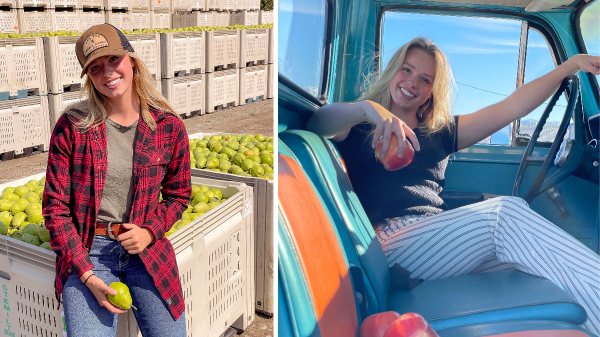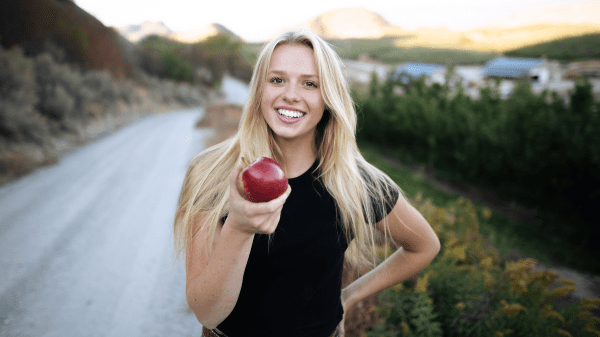I don’t remember the first time I heard someone in agriculture say that “we should be telling our story,” but it was long before Kaitlyn Thornton was born.
The fact that people are still saying it today points up some failure of previous efforts.

Thornton, a senior majoring in marketing at Washington State University, has hit upon a novel and effective way of telling the story of her family’s fourth-generation Washington fruit farm: social media.
Thornton now has 180,000 followers on TikTok https://www.tiktok.com/@apple.girl.kait
and 75,000 followers on Instagram. https://www.instagram.com/kaitlynjillthornton/?hl=en
Thornton’s videos portray the day-to-day operations of her family’s farm, which grows some 420 acres of fruit (60 percent pears, 40 percent apples).
She perceives much of her task as showing people what it takes to grow high-quality produce. Some people, she says, are not “aware that our fruit is hand-picked.” Or that fruit can be picked only at harvest time, not all year round.
Others believe that fruit growers use “slave labor,” Thornton says. “They don’t understand that we try to treat our workers as well as we can,” pointing out that the $17.50 an hour her family pays does not exactly constitute slave wages.
“My family uses the H-2A program,” she says, which is “so beneficial to all parties involved.”
Thornton explains the disconnect between agriculture and the American public partly as a matter of demographics: “100 years ago, there were 7 million farmers in the U.S.”
Today “we’re farming the same amount of land, but with just over 2 million farmers. The farm population has not increased, although the consumer population has increased.” That means “less farmers being able to make those connections with people.”
That in itself has led to less “word-of-mouth contact,” she believes. “Social media can compensate for that loss.”
Thornton is enthusiastic about agriculture. “My degree is marketing is absolutely going back to ag,” she says. “I’m the succession plan for our outfit, but I want to make some real money first.”
Looking at the future of her generation in ag, she says, “I think there’s more of a willingness than people think” for young people to stay in the industry.
With one caveat: “A lot of people looking at their parents, thinking, ‘I appreciate what they do. I don’t like the debt they’re taking on.’”


For the Thornton operation, like many others, annual debt is a regular feature, which, in her words, can be “terrifying.”
She illustrates her point with her family’s story: “We worked with U.S. Bank. After three consistent hard losses due to markets, we were put into special assets. That is not a place where you want to be. Their job is to make your life hell.
“It’s happened to other growers with so many banks,” she continues.
In any event, Thornton says, “I’ve gotten a lot of accolades for things I’ve done on social media. Anyone can do this in the farming community. This is an accessible and easy-to-use technology.
“I don’t want to be the only one doing this.”



